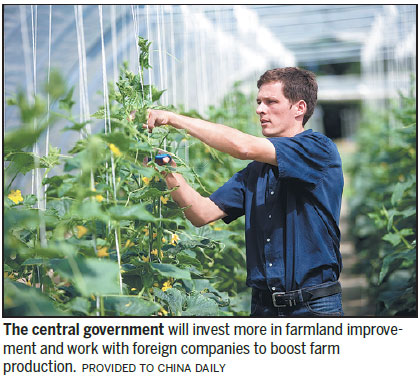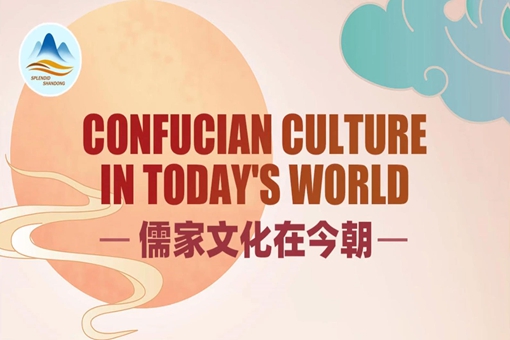Swiss agrochem company set to work with China
By Zhong Nan| (China Daily)| Updated : 2018-05-14
Print PrintSyngenta seeks more partners to make farming more sustainable
Swiss agrochemical and seed producer Syngenta AG has said it is willing to work with more Chinese partners to make agriculture more sustainable in the country and to rejuvenate China's ecosystems.
The company is already working with academics at the Yantai Academy of Agricultural Sciences, apple growers and the vineyard of COFCO Great Wall Winery (YanTai) Co Ltd in Shandong province to adopt practical measures to improve soil quality and sustainability in their orchards.
One of these practices is introducing a specific variety of grass in the orchards, as a permanent green cover, which could help to increase organic matter in the soil, improve soil microstructures and provide better nutrients vital to the quality of the fruit.
This initiative is a part of Syngenta's Good Growth Plan - including six commitments that aim to improve efficiency, build ecosystem resilience and support rural communities, particularly small holder farmers.
One of these commitments is "rescue more farmland" and is aimed at improving and protecting the fertility of 10 million hectares of farmland worldwide.
Romano De Vivo, head of environmental policy at Syngenta, said that agriculture relies on healthy and fertile soil but the challenge is that some 40 percent of existing farmland is thought to be seriously degraded.
He said: "We hope to further raise awareness of this issue and promote conservation practices based on minimum soil disturbance, crop rotation and permanent land cover."
De Vivo said these recommended practices are aimed at helping farmers prevent, halt, or even reverse land degradation by contributing to organic carbon storage, water retention and biological activity in the soil.
To date, a total of 2.4 million hectares of farmland around the world has been affected by Syngenta and its partners under the Good Growth Plan.
Eager to build sustainable crop production globally, a large number of international initiatives, trans-boundary agreements and UN conventions have all raised attention to the value and effectiveness of conservation efforts.
"These are local examples of local provision and project implementation," said De Vivo. "In this framework, the Belt and Road Initiative will represent a truly innovative example."
Ding Lixin, a researcher at the Chinese Academy of Agricultural Sciences in Beijing, said that agricultural pollution has a marked influence on China's water and farmland environment, which means agricultural waste prevention and control must get priority.
"In such circumstances, innovation is the key to bringing advanced solution to growers and addressing new challenges. It needs to be combined with existing practices and technologies for better performance," he said.
To ensure grain security - balancing supply and demand through import and exports - the country has begun to seek practical methods to improve farmland quality and sustainability.
China will invest 600 billion yuan ($87.5 billion) in the next four years to enhance farmland protection and improve farmland facilities, as the country is set to encourage more private capital to participate in the farmland improvement process, as the Office of the Central Leading Group for Rural Work announced earlier last month.
zhongnan@chinadaily.com.cn

(China Daily 02/16/2017 page18)

 Insights from the 10th Nishan Forum
Insights from the 10th Nishan Forum  Confucian culture thrives: Integrating its wisdom into modern value
Confucian culture thrives: Integrating its wisdom into modern value  Confucianism's enduring influence: Shaping East, Southeast Asian civilizations
Confucianism's enduring influence: Shaping East, Southeast Asian civilizations